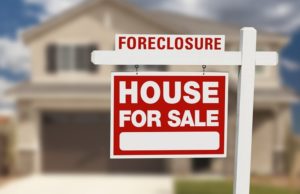 In many cases, when an individual faces foreclosure on their property, he/she is forced to go into bankruptcy as a result. However, since foreclosures in Pennsylvania must go through the courts, you do potentially have options to fight back!
In many cases, when an individual faces foreclosure on their property, he/she is forced to go into bankruptcy as a result. However, since foreclosures in Pennsylvania must go through the courts, you do potentially have options to fight back!
With the right Philadelphia bankruptcy attorney at your side, you may be able to delay or halt the foreclosure proceedings. And if the foreclosure has been handled improperly, you may even be able to counter-sue the bank for damages.
Here are some of the situations under which you could potentially win against those attempting foreclosure.
When You Can Fight Back Against Foreclosure Proceedings
-
False Information
You might find it truly surprising how often foreclosures are initiated based on false or mistaken information, and this can become a solid basis of defense. For example, if your payments were ever mishandled by the creditor or applied to the wrong account, and this created cascading penalties, that one mistake can sometimes be the basis to fight the foreclosure.
-
Unfair Lending Practices
Especially during the “housing bubble” of the 2000s, a lot of banks and other lenders engaged in practices which were illegal under Federal or State law to increase the number of loans they gave out. A top Philadelphia bankruptcy attorney will go through your original loan documents with a fine-toothed comb, looking for any discrepancy which suggests unfair or predatory lending.
-
Robo-Signing
One of the most surprising revelations of the post-bubble debacle is that many of the foreclosures submitted by banks were signed by officials who never reviewed the documentation. At the height of the foreclosure boom, major banks were having employees sign affidavits after spending less than a minute reviewing the paperwork.
In the event it can be shown your foreclosure action was initiated by someone who could not reasonably be certain the foreclosure was warranted, it can be challenged.
-
Failure to Properly Serve Notice
Under Pennsylvania law, a lender must give debtors at least 30 days’ notice before initiating foreclosure proceedings, and allow them 20-30 days to respond. Additionally, if the property is to be sold by the lender, they must post notice at least 30 days before the sale is initiated.
In the event that any of these notice terms were violated, you may have a strong case to halt the foreclosure.
You Have Options!
William D. Schroeder, Jr., Attorney at Law has over 30 years of experience representing Philadelphia residents in bankruptcy and foreclosure proceedings. Contact our offices today for a consultation.
The associated presentation contains images that were used under a Creative Commons License. Click here to see the full list of images and attributions:
https://app.contentsamurai.com/cc/18899
